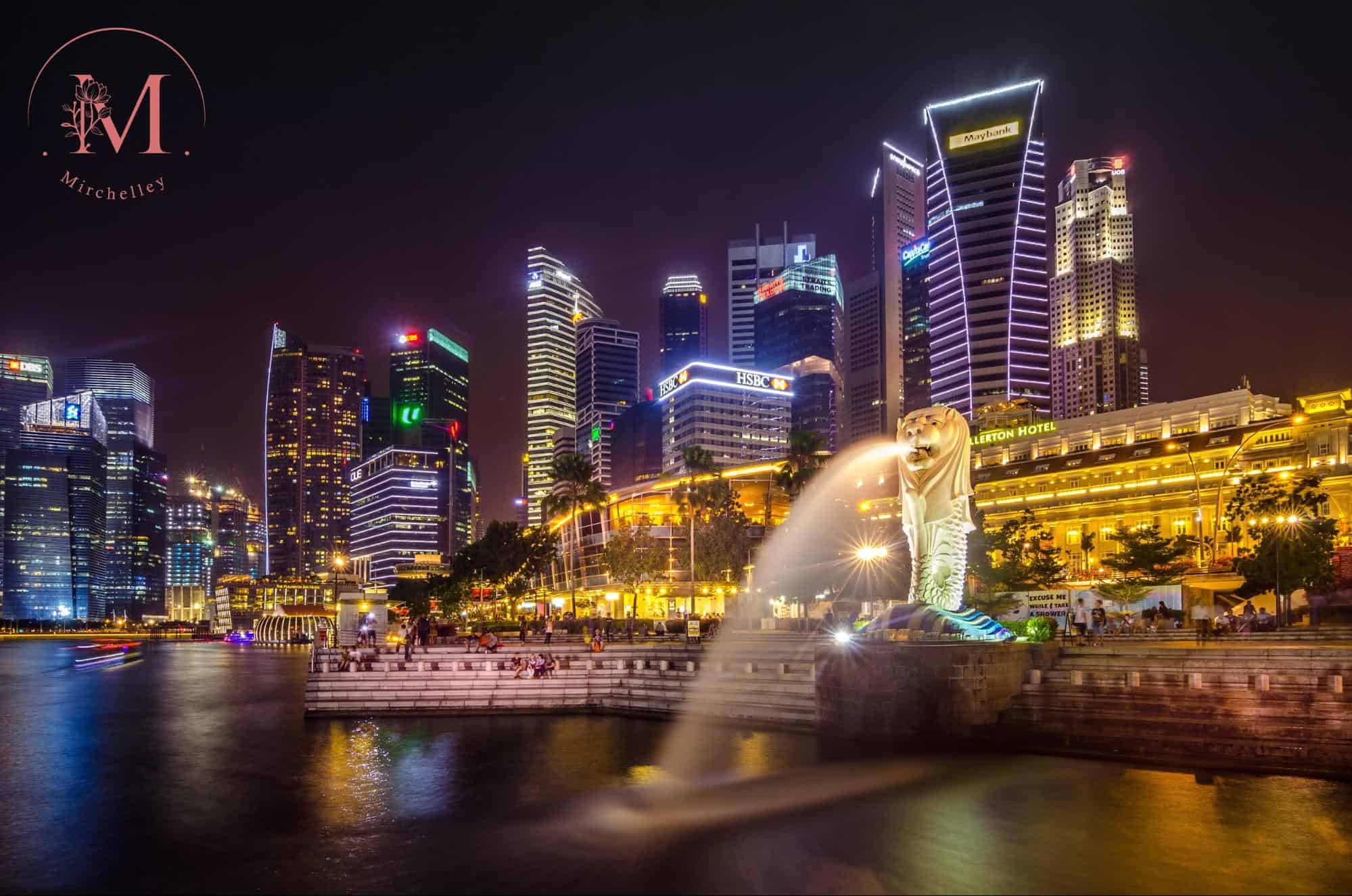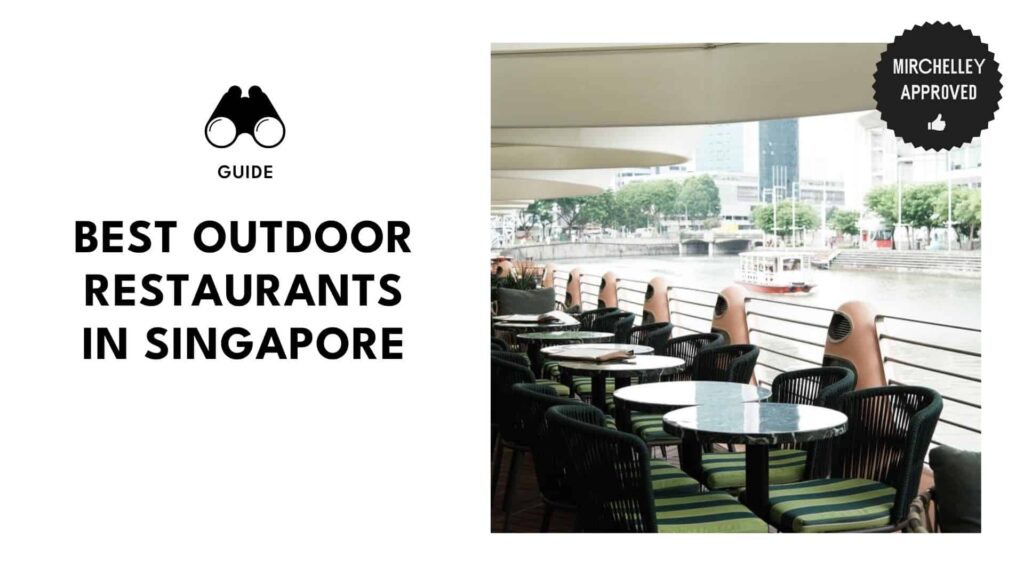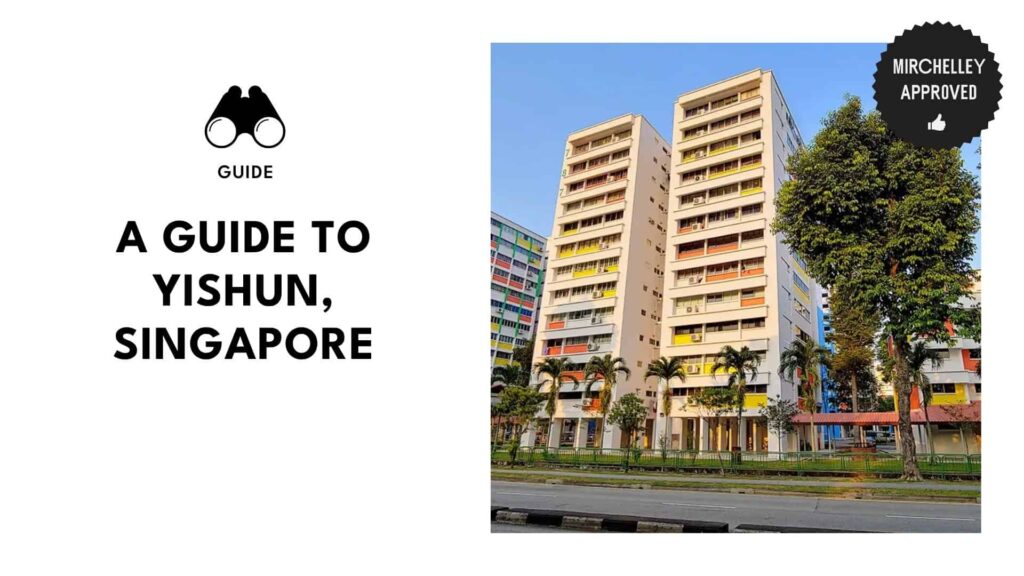Categories > Guides and Tips

Is the cost of living in Singapore affordable?
- Lifestyle in Singapore
- Shopping in Singapore
- Nightlife in Singapore
- Eating Out in Singapore
- Outdoor Activities in Singapore
- Travelling in Singapore
- Family Life in Singapore
- General Living Expenses in Singapore
- Average Salary in Singapore
- Average Monthly Expenses in Singapore
- Housing and/or Accommodation
- Rental Property
- Purchasing a Property
- Food
- Healthcare and Dental
- Healthcare Average Cost
- Dental Average Cost
- Education
- Preschool
- Primary School
- Secondary School
- Post-Secondary Education
- Utilities
- Travel and Transportation
- Cost of Living in Singapore for Singles
- Cost of Living in Singapore for Couples
- Cost of Living in Singapore for a Family
- Most Expensive and Cheapest Districts to Live in Singapore
- Most Expensive Districts in Singapore
- District 3: Tiong Bahru, Queenstown
- District 10: Ardmore, Bukit Timah, Holland Road, Tanglin
- District 9: Orchard, River Valley
- District 7: Middle Road, Golden Mile
- Cheapest Districts in Singapore
- District 23: Cho Chu Kang, Dairy Farm, Hillview, Bukit Panjang
- District 27: Sembawang, Yishun
- District 25: Kranji, Woodlands
As someone who wasn’t a natural-born citizen of Singapore and had only moved here a couple of years ago, one of the first things I considered before I left my home country to live life in Merlion city was the cost of living.
Naturally, I wanted to see if my salary could sustain the daily expenses I would have in the country and keep a couple of savings for the future. Since Singapore is a first-world country, the cost of living is expectedly high.
However, the salary rate and government-mandated benefits make up for the expenses enough to provide the citizens with a comfortable lifestyle and entice ex-pats to live life in the city-state.
Lifestyle in Singapore

The lifestyle in Singapore involves shopping, nightlife, eating out, going outdoors, traveling, and taking care of the family.
Singapore has a work-hard-play-hard culture and we mean that in every sense of the word. People from the working population can afford all the indulgences offered in the country.
These indulgences include shopping, clubs, pubs, lavish restaurants, travel opportunities, outdoor activities, and a comfortable family lifestyle.
Shopping in Singapore
Singaporeans love shopping. And the number of modern malls and boutiques lining up the city’s streets clearly shows this passion for self-indulgence.
According to Singapore Business Review, 80% of Singaporeans can’t resist a good bargain.
You will find all kinds of luxury stores around the city-state along with shops that sell high-quality wares.
Nightlife in Singapore
Singapore has a very rich nightlife full of buzzing pubs and bars that offers nothing short of the best entertainment in the city. The night gives people the perfect opportunity to enjoy happy hour prices.
Even with the rather high price of alcohol, a lot of locals and foreigners enjoy visiting the pubs in Singapore thanks to the live performances, scenic views, and wide array of food choices.
Eating Out in Singapore
Food is a big part of Singapore’s culture. Eating out became increasingly more popular than preparing your food at home, especially if you are a working adult or a student.
According to a review by Singapore Business Review, 1 out of four Singaporeans dines out every day. 72% of the respondents report eating dinner outside the comfort of their homes since preparing meals is more expensive and inconvenient.
The range of places you can visit as a foodie goes from local hawkers with a cheap but flavourful selection of food bowls to lavish restaurants that offer a range of worldwide culinary choices.
Regardless of your budget, you will find that there is so much you can enjoy in Singapore’s food scene.
Outdoor Activities in Singapore
Despite being busy, Singaporeans love maintaining a healthy and active lifestyle. This is supported by the government and the city council, thus you will find a lot of recreational areas around the country.
Right by the ports, you will see activities like kayaking, paddle boarding, and snorkeling. You can even go out for a hike or cycle around the vast area of Singapore’s cityscape.
While some activities require you to rent out equipment and pay entrance fees, there are some free activities and spots you can enjoy. One example of this is Taman Jurong park where playgrounds and exercise equipment are provided.
Travelling in Singapore
One of the things that Singaporeans use to counter the stress of their daily hassle is traveling. The convenient transportation and the efficient railway and airport system make sure that you will get the most out of your traveling experience.
On average, a family in Singapore travels at least thrice a year for leisure purposes. This includes trips outside and inside the country.
To save on travel expenses, a lot of Singaporeans tend to subscribe to local discount sites such as Klook and Visit Singapore, which offer travel packages at a low price.
Family Life in Singapore
Singapore’s culture values family, and thus, there are plenty of family-friendly activities you can enjoy in the country. Around every neighborhood, there is a park where you can spend time with your family for free and enjoy occasional performances.
Families can also explore the Night Safari, Singapore Zoo, Jurong Bird Park, and Universal Studios Singapore where kids can play around all day in the company of their favorite animals and characters.
General Living Expenses in Singapore

The general living expenses in Singapore are centered around accommodation, transportation, groceries, utilities, leisure, and childcare (if applicable).
All these considered, the approximate cost of living for a bachelor in Singapore is $1,336 per month.
If you have a family, you can expect almost the same amount minus the rent assuming that all of you live in the same house. This average cost can guarantee a comfortable but below-extravagant lifestyle.
Average Salary in Singapore

As of 2023, the average salary in Singapore for entry-level positions is $2,750 monthly while those with executive positions get paid $3,300 per month.
The salary you will earn will depend on the job you do. Usually, accounting and finance workers have a higher salary bracket compared to people in supply chain and procurement.
The good thing is that the Singapore Ministry of Manpower does not prescribe minimum wage to workers regardless of whether you are an ex-pat or a local.
The country also has a Workfare scheme that supports low-income workers aged 35 and above. To receive this support, you must be a Singapore citizen that earns not more than $2,300 monthly.
Average Monthly Expenses in Singapore

The average cost of living in Singapore is $1,336, which covers expenses such as accommodation, food, healthcare, education, utility, and transportation.
Comparing this to the average salary in the country, the cost of living in Singapore is relatively expensive.
Housing and/or Accommodation

The average monthly rent in Singapore is somewhere between $942 to $4,709. Meanwhile, purchasing a property can cost an average of $2,018 to $8,072 on a monthly mortgage.
Accommodation is one of your biggest expenses when living in Singapore. If you want to save a few dollars, you can find a property located on the outskirts of the business centers like the Woodlands.
Rental Property
Below is the average cost of monthly rentals in Singapore depending on the classification of the property:
| Property Classification | Average Cost |
| HBD flat or shared apartment and condo | $940 to $2,700 |
| Studio apartment | $2,018 to $6,054 |
Purchasing a Property
These are the average cost you need to know if you are interested in purchasing a property in Singapore:
| Property Classification | Average Cost |
| Resale Property | $6,730 to $40,000 |
| Private Property | $17,500 and above |
Food

The average monthly food expense for a single person in Singapore is $200.
This only takes into account the cost of groceries, assuming that you cook all your meals at home. If your habits include eating out, you can expect to triple the average expense for food.
To save money on your food, you can look for the cheapest places to buy groceries in Singapore like the Value Dollar, Warehouse Club, and Tiong Bahru Wet Market.
Healthcare and Dental

The average cost of a basic health screening in Singapore is $262, excluding any major operations. Meanwhile, dental care cost an average of $16 to $29 in public hospitals and $40 to $150 in private clinics.
Healthcare is quite expensive in Singapore, especially if you require any special treatments.
If you want to save money on your healthcare, we advise you to visit public clinics and hospitals since they offer a lower rate than private institutions.
Healthcare Average Cost
The table below will show you the average cost for both medical and surgical specialties in Singapore:
| Healthcare Specialties | Hospital Type | Average Cost |
| Medical specialties | Public | $1,012 to $7,876 |
| Surgical specialties | Public | $1,638 to $10,541 |
| Medical specialties | Private | $3,906 to $24,687 |
| Surgical specialties | Private | $8,109 to $18,993 |
Dental Average Cost
The table below will show you the average price for the most common dental procedures in Singapore:
| Dental Procedure | Public Rate | Private Rate |
| Polishing and scaling | $46.90 to $89.50 | $90 or above |
| Impacted wisdom tooth surgery | $600 to $825 | $850 to 1,200 |
| Braces | $3,000 to $4.870 | $4.066 to $10,700 |
| Dental implants | $1,377 to $1.974 | $700 to $5,350 |
| Crowns | $650 to $786 | $850 or above |
| Root canal treatment (per tooth) | $258 to $1,200 | $500 to $1,000 |
Healthcare and dental are both expensive in Singapore. To prevent being financially crippled by all these expenses, a lot of Singaporeans avail of medical insurance.
Companies in Singapore also provide health cards to their employees to shoulder the cost of their medical expenses.
Education

The average cost of education in Singapore is $390 to $780 for primary education, $25 to $600 for secondary education, and $8,200 to $9,600 for tertiary education.
Take note that the cost can vary depending on your residency status, school level, and school type. The government also provides subsidies, but only until secondary school.
Preschool
The table below shows the school fees for different grade levels in preschool:
| Grade/Level | ECDA schools | Private schools | Average cost per month (after subsidies) |
| Infant care | $1,364.25 | $856 to $2,300 | Between $41 to $2,100 |
| Playgroup | $386 – $800 | $1,369 – $2,300 | Between $3 to $2,000 |
| Kindergarten | $386 – $770 | $800 – $3,008 | Between $3 to $2,700 |
Primary School
In Singapore, all citizens are eligible for a free primary school education, which can help parents prepare for their child’s future study plans. However, they still need to pay the miscellaneous fee, which can cost an average of $6.50 to $13 per month.
Find the average cost of primary school fees depending on your residency status in the table below:
| Residency status | Monthly fee |
| Singaporean citizen | $6.50 to $13 |
| Singapore PR | $211.50 to $218 |
| International ASEAN | $4,471.50 to $478 |
| International (non-ASEAN) | $781.50 to $788 |
Secondary School
The secondary school system in Singapore is split into 5 types. These are specialized independent schools, independent schools, government-aided schools, government schools, and special education schools.
The monthly cost for education will depend on which type of secondary education school your child is enrolled in.
The table below will show you the amount you need to pay monthly for your child’s secondary education. The fees for specialized independent schools and special education schools are not mentioned since they depend on the institution itself.
| Residency status | Government School (GS) | Government Aided School (GAS) | Independent School (IS) |
| Singaporean citizen | $25 | $43 | $300 to $600 |
| Singapore PR | $400 | $418 | $600 to $1,000 |
| International (ASEAN) | $800 | $818 | $1,000 to $2,500 |
| International (Non-ASEAN) | $1,470 | $1,488 | $1,000 to $2,000 |
Post-Secondary Education
After graduating secondary education, a student can take either junior college, Institute of Technical Education, or Polytechnic. Below are some of the fees that you can expect for your child’s post-secondary education:
| Education type | Avg. cost for Singaporean Citizen | Avg. cost for Singapore PR | Avg. cost for ASEAN | Avg. cost for non-ASEAN |
| Junior college | $33 | $487 | $1,067 | $1,827 |
| Polytechnic | $2,900 | $6,000 | $11,000 | $11,000 |
| Institute of Technical Education | $410 to $3,210 | $5,550 to $7,760 | $15,450 to $20,000 | $15,450 to $20,000 |
Utilities

The average cost for utilities in Singapore is $200 to $600. This includes electricity, a cooling system, heating, water, garbage disposal, mobile tariff, and internet.
| Utility | Average Cost |
| Electricity | 28.95 cents per kWh |
| Cooling | $4 |
| Heating | 28.95 cents per kWh |
| Water | 28.95 cents per kWh |
| Garbage disposal | $8.25 |
| Local prepaid mobile tariff | $0.2 |
| Unlimited internet package | $45 |
Compared to other daily expenses like rent, the cost of utilities in Singapore is relatively cheap.
Travel and Transportation

The average transportation cost in Singapore is $1.50 if you opt to travel via MRT, $5 via taxi, and $0.99 via public buses. This can increase depending on the distance you travel.
| Transportation Type | Average Cost |
| MRT | $1.50 to $1.90 per journey |
| Buses | $0.99 and above depending on distance |
| Taxis | $5 to $10 |
| Private transport | $10 and above depending on distance |
With Singapore’s effective traffic and railway system, traveling around the city has never been easier.
Locals and ex-pats are even encouraged to simply use public transport instead of purchasing their vehicles since this is cheaper.
Cost of Living in Singapore for Singles

The average monthly cost of living for singles in Singapore is $1,336. This includes rent, utilities, food, transportation, and healthcare expenses.
Singapore is an ideal place to live for a bachelor who has a decent job since the country has much to offer when it comes to giving you an extravagant and leisurely lifestyle.
Cost of Living in Singapore for Couples

The average monthly cost of living for couples in Singapore is $2,000 to $4,050. This includes rent, food, utilities, healthcare, and other basic needs.
The amount above is for couples who don’t spend much on luxurious and leisurely activities. If you and your partner have a more robust lifestyle, then you can expect to spend more on your cost of living.
Cost of Living in Singapore for a Family

The average cost of living for a family of four in Singapore is $5,357.
This includes the rent, utilities, food, and other basic needs, but excludes education expenses, assuming that your child is under government subsidy.
Raising a family in Singapore can be expensive, so Singaporeans don’t have a lot of children. Couples most often stop after having one or two kids.
The good thing, however, is that the government provides subsidies for students in their primary to secondary years of education, so you as a parent would have time to financially prepare for their future.
Most Expensive and Cheapest Districts to Live in Singapore
The cost of living in every district in Singapore can differ depending on how close they are to business centers and public attractions.
Below, we will show you Singapore’s most expensive and cheapest places to live in.
Most Expensive Districts in Singapore

The most expensive districts in Singapore are Districts 3, 10, 9, and 7, which are all established business centers with major attractions and transport systems.
| District | Average rent price | Average cost of living |
| District 3: Tiong Bahru, Queenstown | $2,099 | $7,228 |
| District 10: Ardmore, Bukit Timah, Holland Road, Tanglin | $2,369 | $7,527 |
| District 9: Orchard, River Valley | $2,526 | $8,560 |
| District 7: Middle Road, Golden Mile | $2,639 | $8,700 |
District 3: Tiong Bahru, Queenstown
| District | Average rent price | Average cost of living |
| District 3: Tiong Bahru, Queenstown | $2,099 | $7,228 |
District 3 has a $7,228/month average cost of living, which is 5 times higher than the national cost of living ($1,336). The average rent price is also twice as high as the rent on Singapore’s East Coast.
District 3 is located near the central business district of Singapore and thus, the average cost of living here is higher compared to other areas around the country. Another thing adding to its value is that it houses the oldest estate in Singapore.
District 10: Ardmore, Bukit Timah, Holland Road, Tanglin
| District | Average rent price | Average cost of living |
| District 10: Ardmore, Bukit Timah, Holland Road, Tanglin | $2,369 | $7,527 |
District 10 has an average cost of living amounting to $7,527/month and an average rent price of $2,369/month, which are both higher than the national average of $1,366/month and $1,000/month respectively.
District 10 is the most affluent area of Singapore since it offers the perfect balance of infrastructure and green areas. You can also find top-notch nightlife spots in District 10, which makes it popular for working bachelors.
District 9: Orchard, River Valley
| District | Average rent price | Average cost of living |
| District 9: Orchard, River Valley | $2,526 | $8,560 |
District 9 remains one of the most expensive areas in Singapore to live in, with an average cost of living amounting to $8,560/month and an average rent price of $2,526/month.
The area is 6 times more expensive to live in compared to the national average. It also has a higher rent price that is more than double the average cost in Singapore.
The Orchard in District 9 houses an unrivaled dining paradise and the widest selection of luxury shops. This area is the epitome of leisure and extravagance, which makes it no surprise that it is one of the most expensive districts.
Aside from the malls and restaurants, District 9 also has a fantastic selection of living spaces that boasts luxury and convenience.
District 7: Middle Road, Golden Mile
| District | Average rent price | Average cost of living |
| District 7: Middle Road, Golden Mile | $2,639 | $8,700 |
The average cost of living in District 7 is $8,700/month, which is the most expensive in the country. Meanwhile, the average rent price is $2,639/month.
District 7 is the most expensive area in Singapore due to the increase of grade-A office spaces around the area. Living here is ideal for office workers since many companies establish their businesses within the district.
Cheapest Districts in Singapore

The cheapest districts in Singapore are District 23, District 27, and District 25, which are all relatively far from Singapore’s business centers.
| District | Average rent price | Average cost of living |
| District 23: Choa Chu Kang, Dairy Farm, Hillview, Bukit Panjang | $500 to $1,200 | $2,500 |
| District 27: Sembawang, Yishun | $750, to $1,000 | $2,800 |
| District 25: Kranji, Woodlands | $750 to $1,200 | $3,500 |
District 23: Cho Chu Kang, Dairy Farm, Hillview, Bukit Panjang
| District | Average rent price | Average cost of living |
| District 23: Choa Chu Kang, Dairy Farm, Hillview, Bukit Panjang | $500 to $1,200 | $2,500 |
District 23 is one of the most affordable districts in Singapore. It is located on the West side of the country and has very minimal infrastructure.
The cost of living here ($2,500/ month) is slightly higher than the national average, but that is because the national average only takes into account the lowest possible price for rent.
As for the average price of rentals, you will find the cheapest accommodations in this district, ranging from $500 to $1,200.
The reason why this place is cheap compared to other districts is that it is far from Singapore’s center of commerce, which makes it less convenient for students and workers to live in.
District 27: Sembawang, Yishun
| District | Average rent price | Average cost of living |
| District 27: Sembawang, Yishun | $750, to $1,000 | $2,800 |
This area is another cheap location for you to rent your place. It is called a sleepy small town because there aren’t a lot of shops or entertainment around the area.
You will find cheap apartments here for an average price of $750 to $1,000, which meets the country’s national average of $1,000 for rent. The cost of living in this city is also low and would only cost $2,800 per month on average.
District 25: Kranji, Woodlands
| District | Average rent price | Average cost of living |
| District 25: Kranji, Woodlands | $750 to $1,200 | $3,500 |
District 25 is the rural area of Singapore. It has a wide land area and it is far from the city, making rent cheaper compared to other districts in the country.
The average rent price of $750 to $1,200 meets the national average of $1,000 for rental spaces. The cost of living ($3,500), however, is almost thrice as high as the national dictated average of $1,336.
The great thing about this district is that it doesn’t lack development. It is a well-loved place with affordability as one of its perks.
As expensive as it is to live in a first-world country like Singapore, life here isn’t as hard as you might imagine. The expanding economy, high salary rates, and government benefit more than make up for the expenses.




